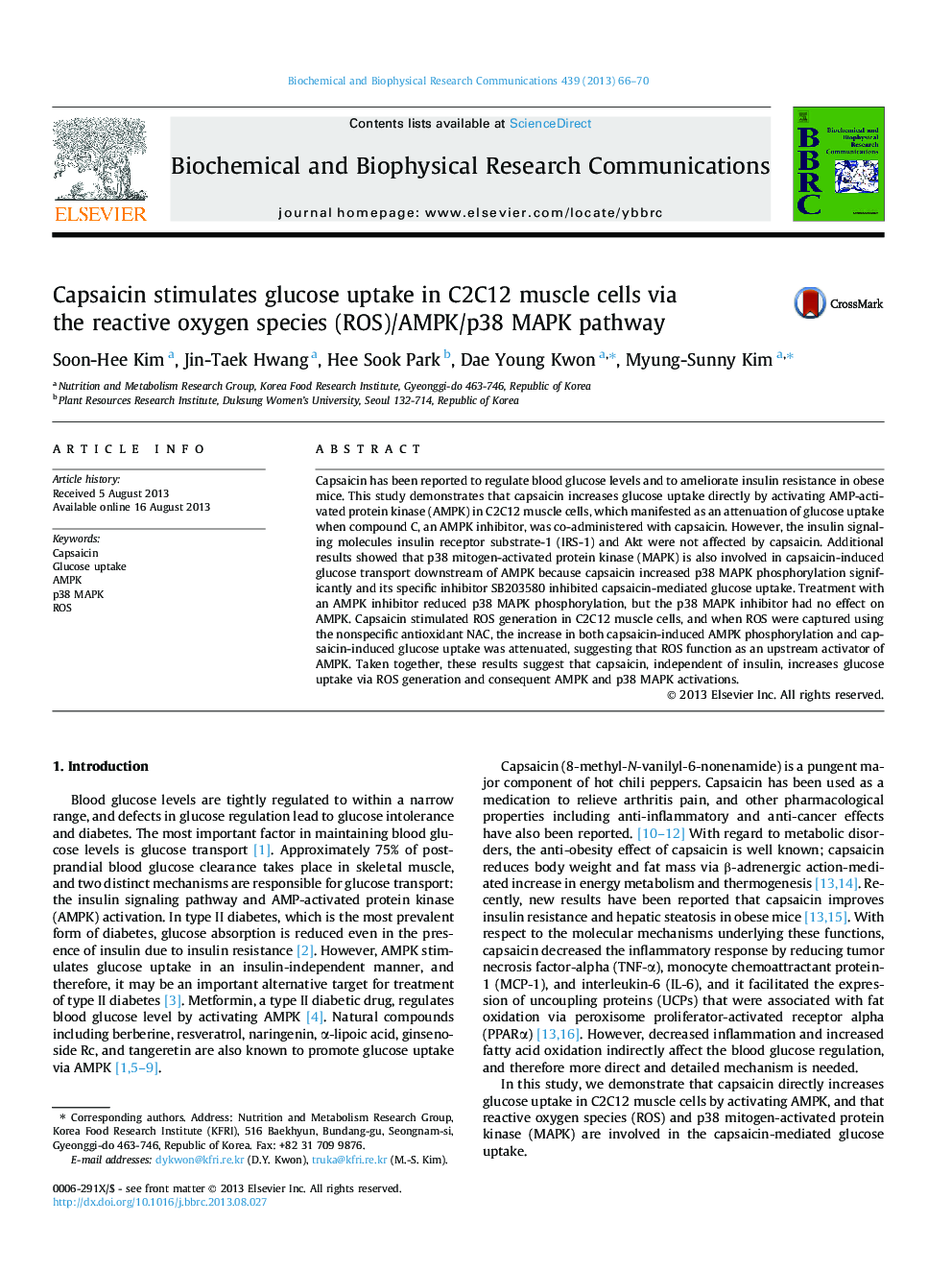| Article ID | Journal | Published Year | Pages | File Type |
|---|---|---|---|---|
| 10758197 | Biochemical and Biophysical Research Communications | 2013 | 5 Pages |
Abstract
Capsaicin has been reported to regulate blood glucose levels and to ameliorate insulin resistance in obese mice. This study demonstrates that capsaicin increases glucose uptake directly by activating AMP-activated protein kinase (AMPK) in C2C12 muscle cells, which manifested as an attenuation of glucose uptake when compound C, an AMPK inhibitor, was co-administered with capsaicin. However, the insulin signaling molecules insulin receptor substrate-1 (IRS-1) and Akt were not affected by capsaicin. Additional results showed that p38 mitogen-activated protein kinase (MAPK) is also involved in capsaicin-induced glucose transport downstream of AMPK because capsaicin increased p38 MAPK phosphorylation significantly and its specific inhibitor SB203580 inhibited capsaicin-mediated glucose uptake. Treatment with an AMPK inhibitor reduced p38 MAPK phosphorylation, but the p38 MAPK inhibitor had no effect on AMPK. Capsaicin stimulated ROS generation in C2C12 muscle cells, and when ROS were captured using the nonspecific antioxidant NAC, the increase in both capsaicin-induced AMPK phosphorylation and capsaicin-induced glucose uptake was attenuated, suggesting that ROS function as an upstream activator of AMPK. Taken together, these results suggest that capsaicin, independent of insulin, increases glucose uptake via ROS generation and consequent AMPK and p38 MAPK activations.
Related Topics
Life Sciences
Biochemistry, Genetics and Molecular Biology
Biochemistry
Authors
Soon-Hee Kim, Jin-Taek Hwang, Hee Sook Park, Dae Young Kwon, Myung-Sunny Kim,
